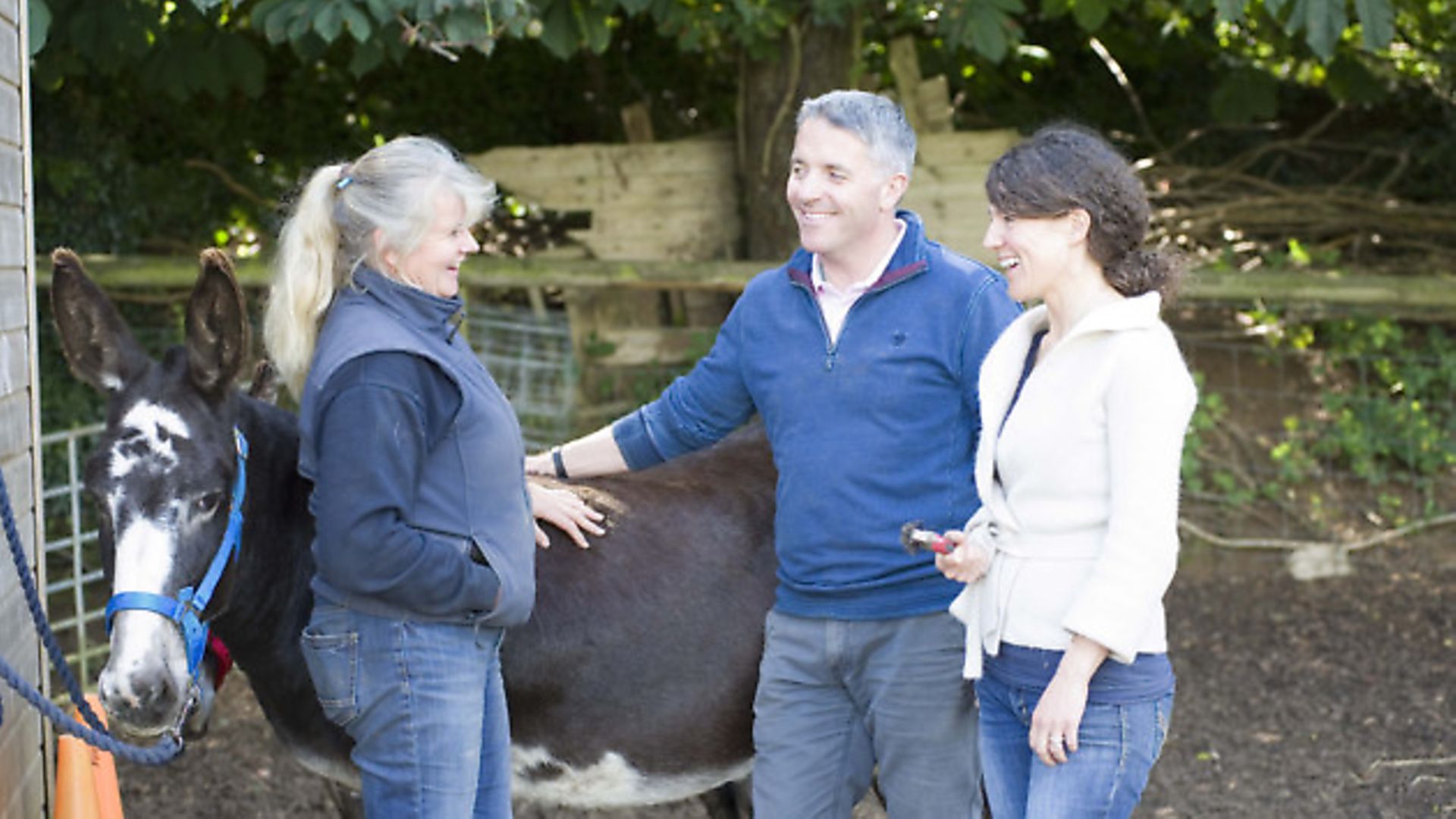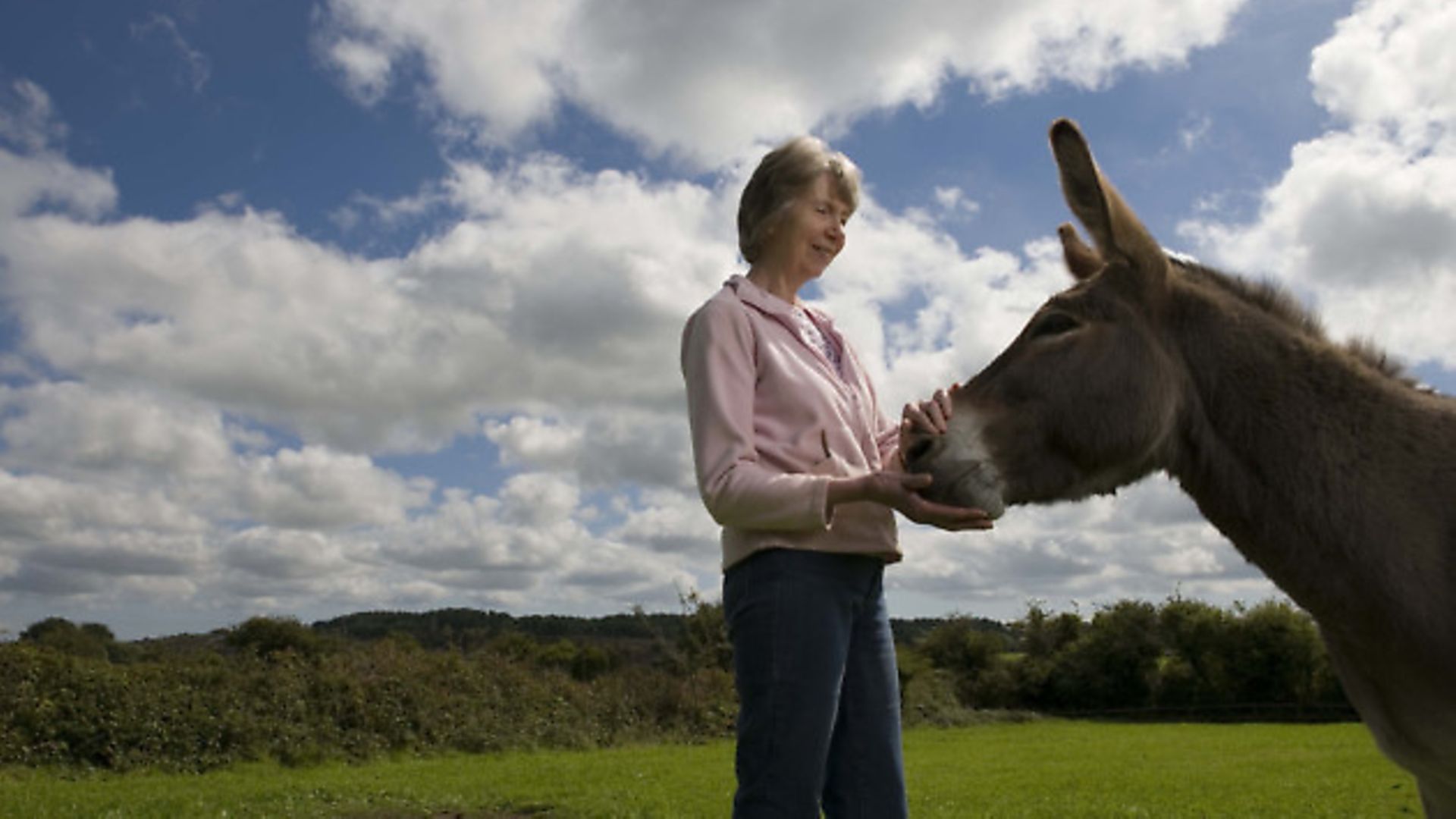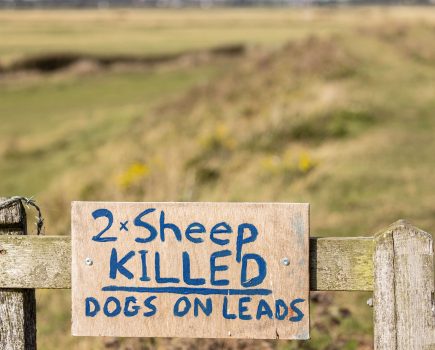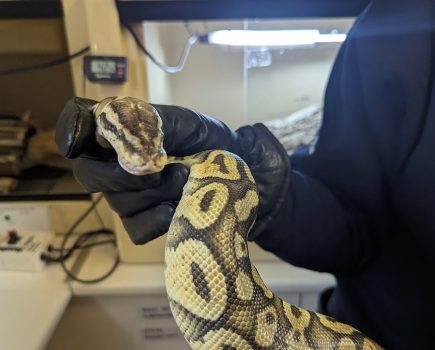Donkeys may not be an obvious choice for the smallholder, but Kim Stoddart considers the many benefits

I’ve always had a soft spot for donkeys ever since I first encountered them on holiday in rural southern Spain, yet until recently I hadn’t considered them as a possibility for my smallholding. It was only after speaking in depth to smallholders that do keep them, that the many benefits to be had from welcoming a couple of these highly loveable creatures onto your land became apparent. So once we find the time to repair and upgrade one of our field shelters that’s exactly what we’ll be doing and I don’t know who is more excited – my partner, me or the kids…
So why keep donkeys?
A common consensus amongst donkey keepers is how rewarding keeping a few can be. As well as providing you with a fantastic manure for the veg patch, donkeys enjoy browsing on a range of plants, even those that are woody, and can therefore be used to clear ground and brambles (as long as you of course check at first that nothing poisonous is growing).
Children love them, and although the average donkey is far too small to be ridden by adults, mid-sized donkeys are perfect for younger ones with their slow, steady style of walking. Donkeys can safely carry about 20 per cent of their body weight so it’s important to bear this in mind as children get older (and heavier).
Donkeys form strong bonds with people and other animals and in some places are actually used to protect other farm animals from attack. Whilst others talk about their excellent skills as herders and use them to help round up sheep or goats, which they apparently enjoy doing.
The Donkey Sanctuary in Devon said: “With a little care and some time each day, donkeys will repay the investment many times over in the pleasure they bring, and they can also do a little work to help with back ache and sore knees while keeping the land fertile and productive – what more could you want!”
What about their reputed stubbornness? There’s no doubt that they are indeed stubborn creatures but it’s also worth understanding that a lot of this comes down to their difficulty dealing with unfamiliar situations. They need time to consider and adjust to a new situation so this is why trying to hurry them along really won’t do any good!

The likely costs
Prices vary but you can expect to buy a couple of mid-sized donkeys for between £400 and £1,000 depending on the variety and where you live. Miniature donkeys are considerably more expensive.
You will need a good shelter and adequate fencing in place beforehand and will need to factor in the cost of feed (hay and straw), bedding, worming, vets’ fees and regular farrier visits, which all vary according to the health and age of your donkeys. The Donkey Sanctuary in Devon also recommends an annual dental check, flu/tetanus jab and regular faecal counts.
The therapeutic benefits
Nobody knows why exactly, but donkeys seem to be able to build a special bond with children and adults with additional needs, and as a result can be very beneficial for them to be about. As I’m in the process of setting up a care farm on my smallholding for those with autism, a couple of donkeys will make a valuable addition to the fold.
As donkeys themselves benefit from stimulation and contact – it’s a perfect match.
The challenges
The Donkey Sanctuary’s welfare experts say becoming overweight is a real risk for donkeys in Great Britain and similar environments, and fat donkeys, or even those in ‘good’ condition, may be prone to laminitis and metabolic disease later in life. However, most smallholders would be experienced in techniques for limiting grazing and ensure any work donkeys might do is both good for the waistline and their psychological wellbeing – they are animals that thrive on an interesting life and interaction with caring people.
Always remember that donkeys are not just small horses, they often differ in important ways. This is very important when it comes to expressing pain – donkeys are more stoic and less theatrical than horses, adept at concealing they are in pain and need veterinary attention.
There is more information and a range of fact sheets available covering common questions and concerns at https://www.thedonkeysanctuary.org.uk/donkey-health-and-welfare
Image(s) provided by:
Archant
Archant







